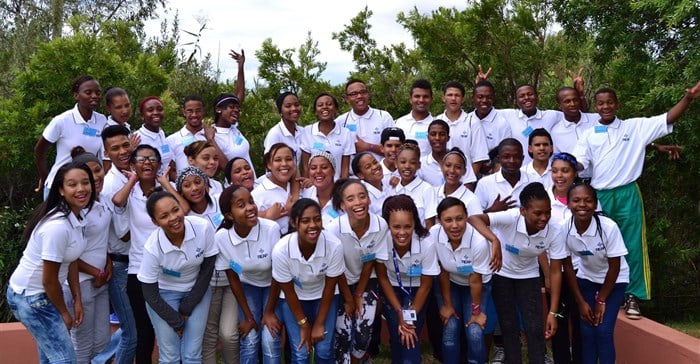
Top stories

Marketing & MediaWarner Bros. was “nice to have” but not at any price, says Netflix
Karabo Ledwaba 11 hours




Logistics & TransportMaersk reroutes sailings around Africa amid Red Sea constraints
Louise Rasmussen 4 hours

More news



















“For a company like Barloworld, it is critical for the sustainability of our business to build a globally competitive national skills base to enable economic and human development in South Africa,” said Jennifer Smith, head of Barloworld’s CSI and Stakeholder Management.
She said it was this ideal that was behind the company’s partnership with the Rural Education Access Programme (REAP), an organisation committed to granting bursaries to hundreds of rural young people from low income families, enabling them to enter universities all over South Africa. A key objective for Barloworld is to ensure that the cycle of poverty is broken for those affected, and that families are uplifted through the support from REAP.
Russell Davies, REAP director, said the support from Barloworld was vital for the organisation’s sustainability, and because the terms of support were consistent, ongoing and non-specified, the money could be used for some of the most basic, low profile needs.
“We don’t ring fence our funding, because it seems unnecessary when it is intended to build capacity within civil society, and to help with development,” explains Smith.
However, REAP is not just about financing study costs for needy students. The programme offers a comprehensive support programme that sees students receiving the backing they need as they adapt to cope with unfamiliar issues such as a change in language, budgeting, technology and everything else that goes with a transition from a simple rural life to being away from home in an unfamiliar environment and studying at tertiary level.
According to Davies, students on the REAP programme are selected based on strict criteria, which include:
Once all the applications are received, the students are required to submit their final marks along with a formal letter of offer from the university with the study programme matching their career choices. The final selection is then completed.
Successful students entering the REAP programme have all their costs covered, including study fees, living and equipment costs, such as a laptop. They are also matched up with a student development advisor.
“All our students are from rural areas, and they are usually the first member of their family ever to have entered higher education. They are faced with a whole new way of studying, they have to learn to handle a budget, language is sometimes an issue and they need some psychosocial, pseudo-parental support,” Davies said, explaining why the student development advisor played such a vital role.
Additionally, REAP offered delegates workshops on life skills, communication, sexual health and employability. All first year students - of which there are 143 this year - went on an orientation camp in February where they got to know each other, were ‘indoctrinated into the REAP family’, introduced to their advisors and had their expectations addressed, Davies explained.